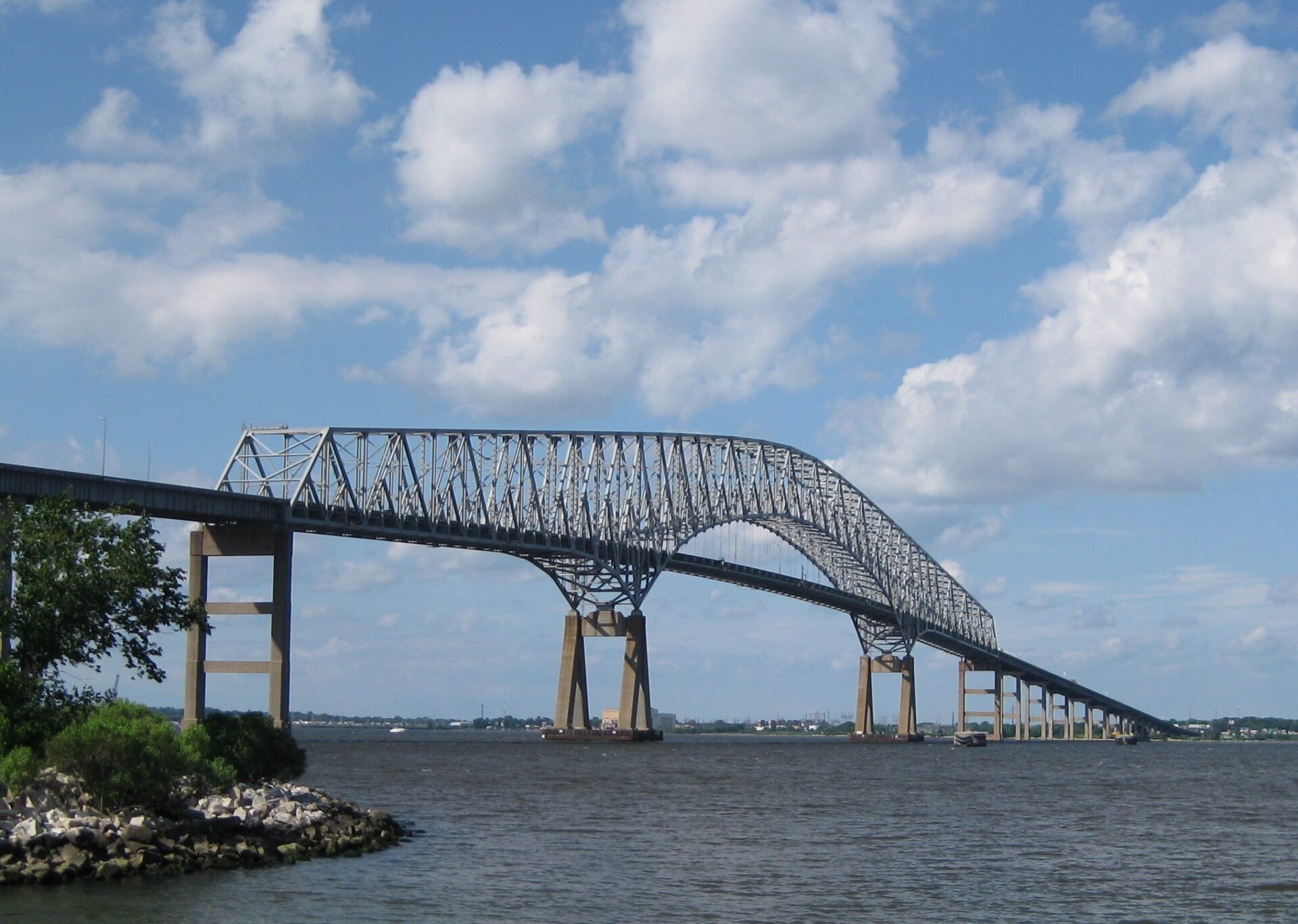Key Takeaways:
• Over the weekend, the president threatened to pull bridge funding for Baltimore’s Key Bridge.
• The money came from Congress and was signed into law by President Biden.
• Experts warn that threatening taxpayer funds is inappropriate.
• Maryland leaders and even some Republicans disputed the president’s claim.
• This fight could shape future debates on federal infrastructure dollars.
Will Trump Cut Bridge Funding?
Former president Donald Trump stirred strong reactions when he hinted he might revoke bridge funding meant for Baltimore. He posted online about the Francis Scott Key Bridge, which suffered damage when a container ship crashed into it. He claimed he “gave Wes Moore a lot of money to fix his demolished bridge” and suggested he might undo that decision. Yet, lawmakers made that grant, not Trump. Republicans and experts quickly pushed back. As a result, many now wonder: What really happened with that bridge funding, and how serious is this threat?
What Really Happened with Bridge Funding?
Last year, Congress passed a budget deal that included money to repair the Francis Scott Key Bridge. President Biden signed it into law. Consequently, states began planning the cleanup and repair effort. Maryland’s governor, Wes Moore, invited the president to join a safety walk near the damaged span. Instead, Trump attacked Moore and claimed he paid for the bridge work. However, Trump had no role in approving those repairs. Rather, federal lawmakers provided the cash.
Moreover, Trump’s post on social media confused many people. He linked bridge repairs to politics and future elections. Then, he warned he might stop the payments. Of course, the money does not come from his pocket. Instead, it comes from the federal budget, which Congress controls. Therefore, his threat appeared more like a stunt than a real policy shift. Even some Republicans slammed the idea.
How Experts See the Threat
Political analysts and legal experts quickly responded to the president’s comments. Ex-prosecutor Ron Filipkowski said it is “taxpayers’ money, not Dictator Trump’s money.” He added that it should not be used to threaten someone who invites you to a community event. Journalist Jake Sherman noted that Congress passed the funding and President Biden signed it. He later corrected himself, confirming Trump’s hands-off role. Additionally, a political strategist named Maine pointed out that Moore enjoys high approval ratings. In short, experts believe Trump aimed to shift attention away from those ratings by claiming credit for bridge funding.
Furthermore, some experts worry this tactic could set a dangerous precedent. If presidents can use funding as political leverage, local projects might stall. Consequently, repairs on vital roads and bridges could falter. Indeed, infrastructure often relies on predictable support. So, uncertainty from the top can harm safety and the economy. Meanwhile, local leaders struggle to plan if they fear money may vanish at any moment.
Why This Matters for Taxpayers
Taxpayers should care because bridge funding impacts everyone. When a major bridge like the Francis Scott Key span fails, traffic grinds to a halt. Commuters face long detours, and businesses lose time and money. Moreover, emergency services could face delays, risking lives. Therefore, reliable federal support is crucial for quick repairs.
In addition, the idea of revoking funds as punishment worries many. If political battles start to block infrastructure bills, Congress may grow more reluctant to approve them. As a result, future road, rail, and bridge projects could slow down. That would hurt communities nationwide. Likewise, local officials might need to seek private funds or loans to fill gaps, which can raise project costs.
What Lies Ahead
Looking forward, several questions remain. Will Trump spend actual political capital to cut that money? Or was his post just a flashy headline grab? So far, there is no evidence he has moved to block the funds. Congress must still approve any changes to the budget. For now, the repairs on the Key Bridge continue under the existing plan.
Meanwhile, Governor Moore and Maryland leaders have invited the president to inspect the site in person. They hope this visit might turn political jabs into a chance for cooperation. Moreover, they aim to show how crucial the repairs are for public safety. Nevertheless, it remains uncertain whether Trump will accept the invitation.
In the larger picture, this episode highlights how infrastructure debates have turned into political theater. Instead of focusing on solutions, some leaders use funding threats to score points. Consequently, Americans may grow frustrated by constant distractions. Thus, voters might demand more stable, nonpartisan approaches to rebuild the nation’s roads and bridges.
FAQs
How much money did Congress approve for the Key Bridge repairs?
Congress approved a budget that included the full cost of emergency repairs and initial rebuilding efforts. The exact figure comes from a larger spending deal passed last year.
Can a president unilaterally cut bridge funding?
No. Only Congress holds the power to change federal spending. The president can propose budget cuts, but lawmakers must approve any changes.
Why did Trump claim he gave money to Wes Moore?
Trump likely sought to position himself as a benefactor and to challenge Moore’s political standing. However, the funds came from a law signed by President Biden.
What might happen if infrastructure funding becomes purely political?
Projects could face delays or cancellations. Contractors might raise costs due to uncertainty. Ultimately, public safety and economic growth could suffer.
